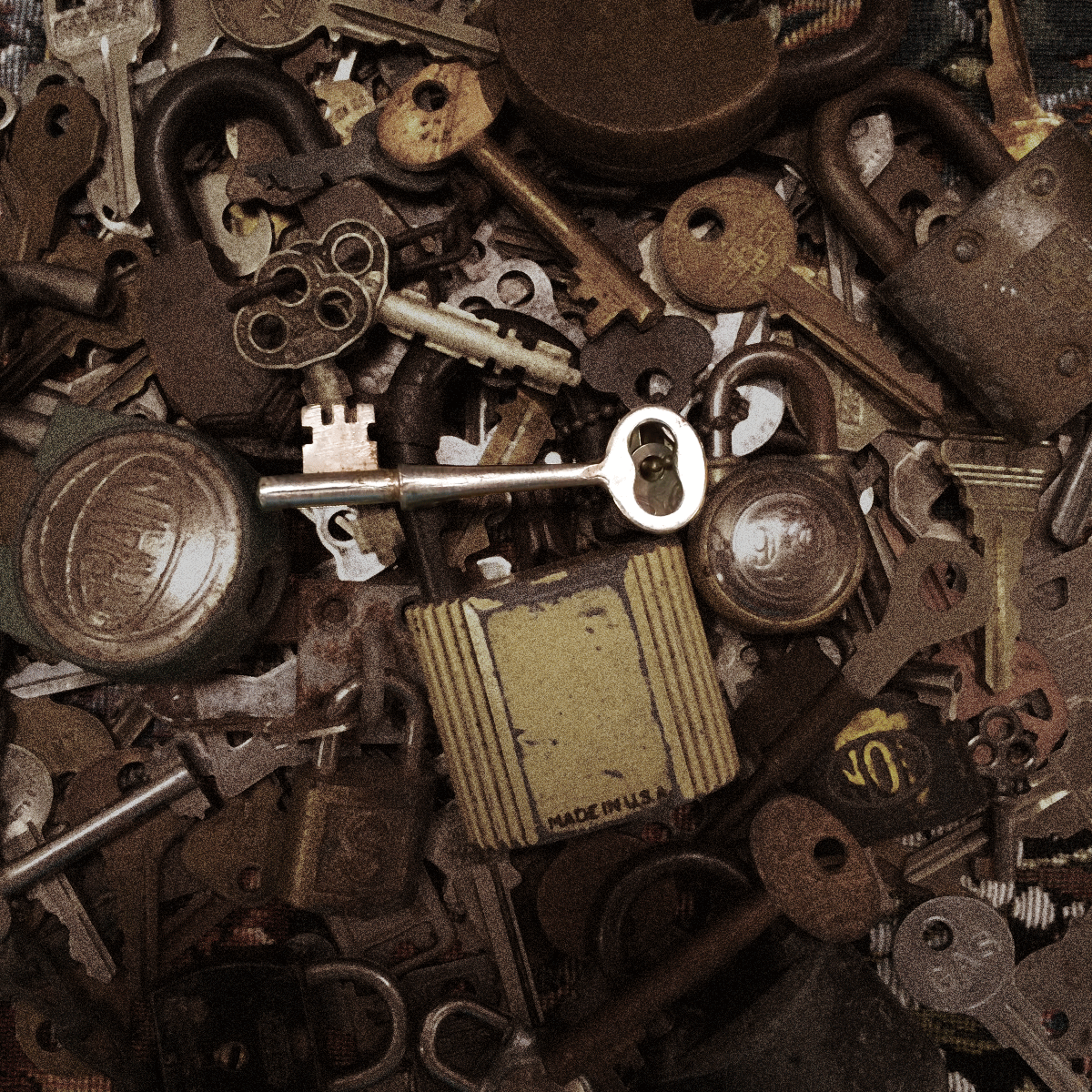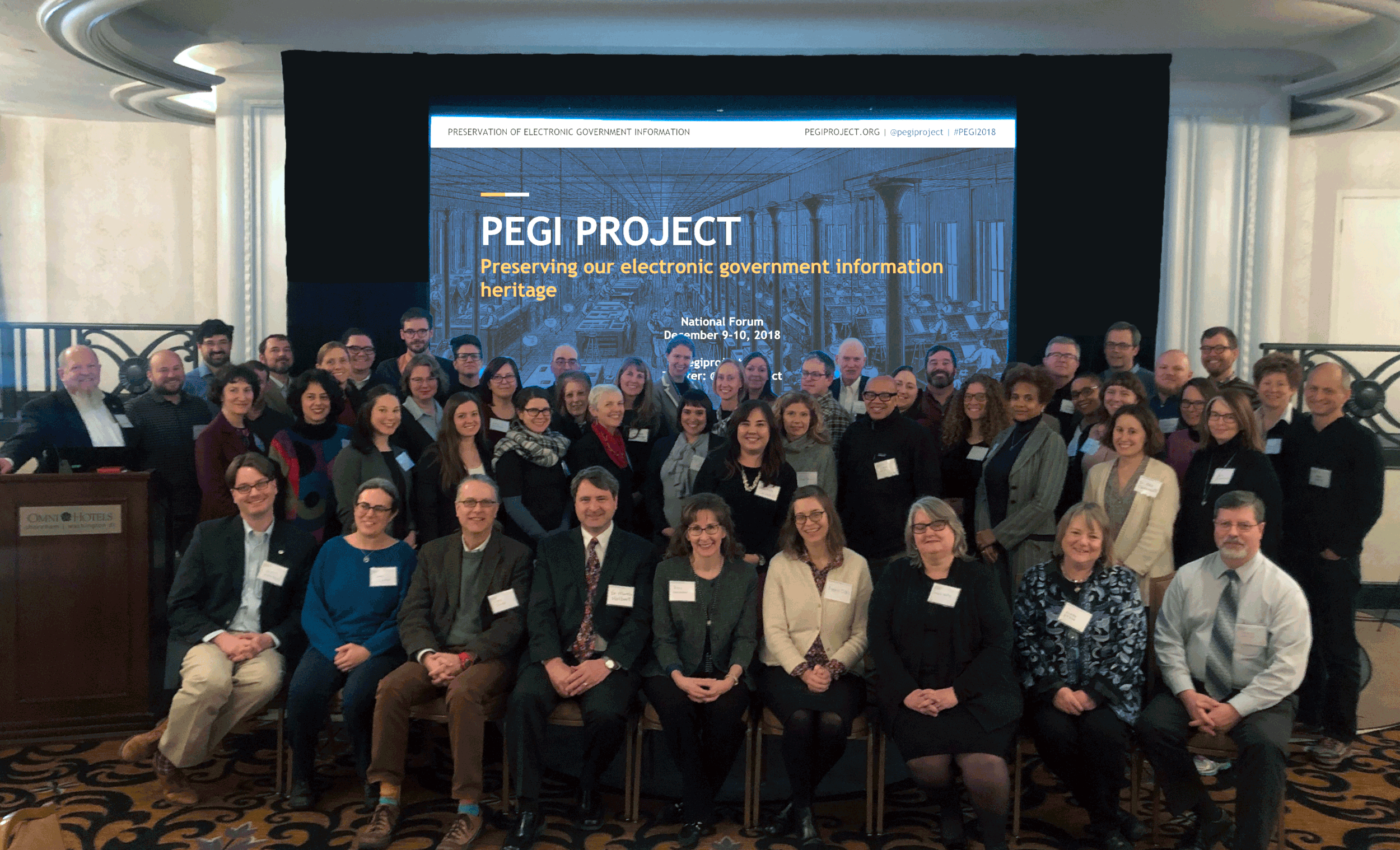The PEGI Project National Forum: Looking Together Toward a Shared Destination
By: Marie Concannon & Shari Laster
Throughout 2018, the PEGI Project convened forums and sought out events to gather ideas, hopes, and concerns about the long-term survival of born-digital government information. Our in-person and virtual events attracted researchers, scholars, librarians, archivists, government agency representatives, journalists, teachers, government transparency advocates, leaders of not-for-profit organizations, and representatives from other stakeholder groups, all of whom had the chance to share their experiences and insight.
Everywhere we went, we found people with specific concerns and perceptive approaches to addressing the needs of preservation of electronic government information. We were gratified to learn from organized groups already engaged in projects of differing scope and size. Alongside leaders, coordinators, and advocates for these efforts, anyone who joined the PEGI Project conversation through mini-forums, webinars, tabling events, poster sessions, or our online survey has become part of a new and growing informal network of people who share this common concern.
The PEGI Project steering committee took what we learned from hundreds of conversations to prepare for a deeper exploration at the culminating event of our IMLS grant period: a National Forum on Preserving Electronic Government Information, held December 9-10, 2018 in Washington, DC. Together we selected around fifty creative thinkers and engaged advocates from among our contacts (and beyond) to participate in the forum’s intensive series of facilitated conversations. Representing the public, academic, government and not-for-profit sectors, participants were asked to stress-test a possible “shared agenda” approach for ongoing cross-stakeholder collaboration. The activities were designed to strengthen relationships between government information creators, selectors, organizers, technologists and users of that information.
Given the vastness and complexity of the issue, we kicked off the two-day event by using metaphors to illustrate the work ahead and what we wish to collectively achieve. Dozens of Visual Explorer cards were scattered among the tables. These cards offer images that can be used to facilitate conversations and dialogues. For example, one depicts a field of beans, another a construction worker dangling high in the air, a third a bright red apple, and so on. As each table participant chose an image and explained how it might serve as a metaphor, the group found potential avenues of cohesion among its members in light of the tasks before us.
One participant found the Hagia Sophia a useful metaphor for preservation. “It was built in Constantinople,” they explained, “which was formerly Byzantium and is now Istanbul. It was built as a church, later became a mosque, and is now a museum. For almost 1,500 years the building has persisted as an objective fact, yet our subjective knowledge of it has continually evolved. This reminds us that the focus of our efforts is not just information, but rather, information experiences, which, being particular to time, place, person, and purpose, are inherently contingent and contextually situated.”
The picture of the bright red apple emerged as a compelling metaphor for another table. A participant from that table explained that Red Delicious apples used to have great flavor before biotechnology firms bred them for shape and color over taste. The participant asked, “How might our digital technologies inadvertently change the objects we wish to preserve? Do our systems preserve elements about the original that we consider most valuable?” This image serves as a reminder that we must be careful not to lose sight of what’s most important.
“Sloth, like rust, consumes faster than labor wears, while the used key is always bright.”
- Poor Richard’s Almanack
One of the most revisited metaphors of the forum came from a picture of keys - most dull, but one shiny. The participant who selected this image quoted a proverb from Poor Richard’s Almanack: “Sloth, like rust, consumes faster than labor wears, while the used key is always bright.” While physical documents might be better preserved with less use, digital objects are more likely to endure if they are used a great deal. They are like the brightest keys.
These and other themes emerged over and over again as part of a full schedule of activities during the National Forum. Later work during the event involved building upon the Collective Impact model advanced by Kania and Kramer. Table participants worked together to identify potential shared measurements of progress and suggest possible cooperative cross-stakeholder approaches to working within this space.
Under the Chatham House Rule, statements are not identified by those who made them; however, we are inexpressibly grateful to all who were able to contribute their time and energy to participate in this event. As the PEGI Project team reviews ideas shared at the National Forum, we will develop detailed observations for a project white paper that will document the highlights of this and other activities and propose some next steps.
The PEGI Project convened the National Forum on Preserving Electronic Government Information with generous financial support from the Institute of Museum and Library Services (IMLS), and additional support from CNI: Coalition for Networked Information, the Educopia Institute, the Center for Research Libraries, and PEGI Project participating institutions including the University of North Texas, the University of North Carolina at Greensboro, University of Missouri, Stanford University, Arizona State University, and Yale University.
We are especially grateful to Dr. Katherine Skinner, who designed the agenda and facilitation process for the National Forum, and who has continued to be an invaluable guide and advisor throughout our project work.



